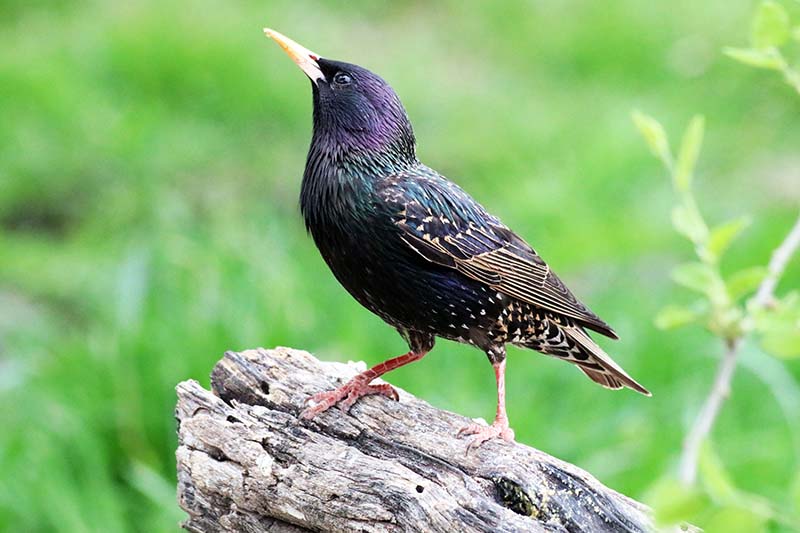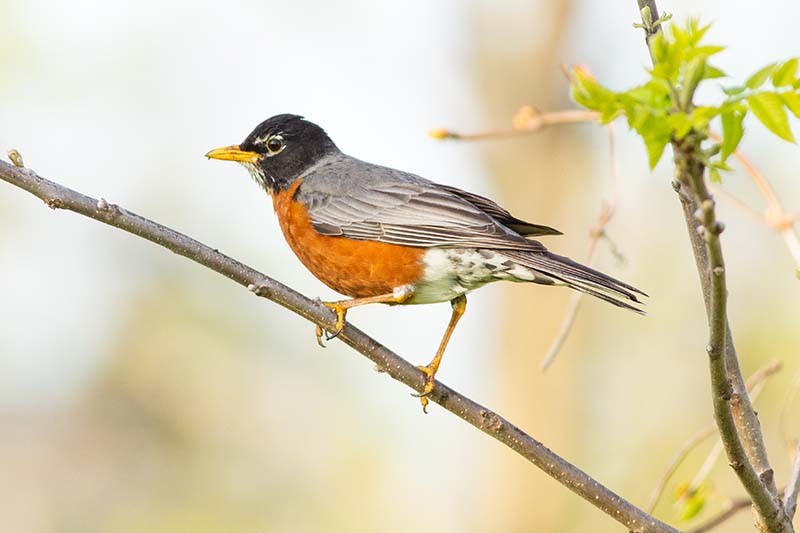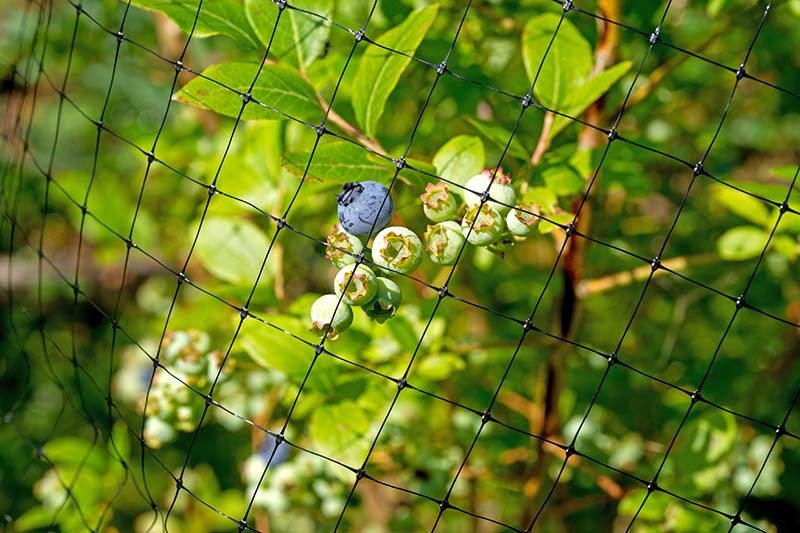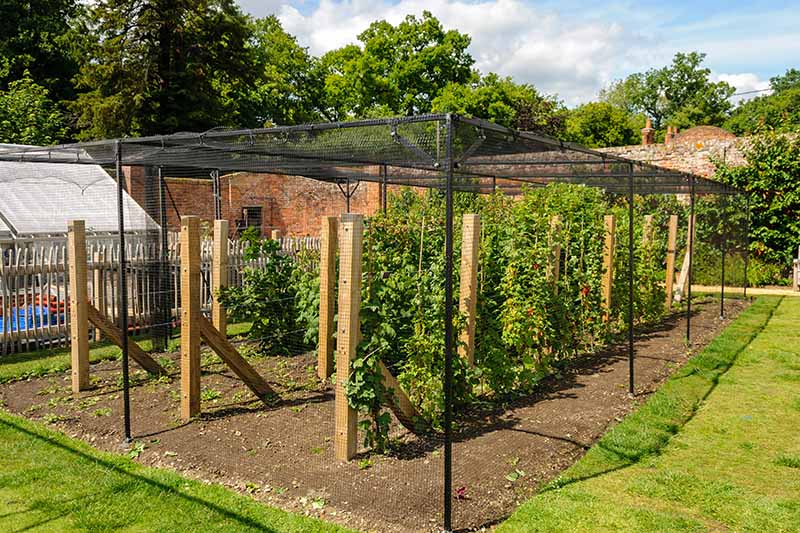Birds like to feed on strawberries, raspberries, blueberries, and whatever other edible fruits you might be growing. These garden and orchard fruits are as tasty and nutritious to birds (and many other creatures) as they are to us.
In rural areas and in commercial orchards or fruit farms, there are sometimes lethal methods taken to protect fruit crops from invaders from the sky. But few urban or suburban gardeners want to plink songbirds with a BB gun, even if it is legal. And before taking any measures at all to chase birds away, you should consider the fact that those birds may be present to eat insects that are damaging your berries. The same measures you use to keep birds away from the berries is also keeping them from eating insects that might be the more serious enemies.
The mere presence of birds in the area does not mean those birds are actively eating berries. Before taking counter-measures, make sure you are actually witnessing the birds eating your fruit.
How to Protect Your Blueberries
To start, what specific species of birds should you watch out for?
Bigger birds will gobble the whole fruit. Littler ones often eat into the fruit, allowing broken berries to rot. Both will knock ripe and unripe fruit off the bush in their joyful frenzy.
The most common blueberry-eating birds are starlings and robins.

Turnus vulgaris, commonly known as the European starling, is a species of great interest as well as a pest in agriculture.
Large flocks of starlings arrive, consume the fruit whole, and puncture berries with their claws.
Between worm courses, blueberries will be visited by individual or small groups of American robins (Turdus migratorius), those beautiful springtime singers.

House finches and red-winged blackbirds are also occasional blueberry pests.
Though they may not specifically target blueberries, seed-eating birds such as finches are drawn to areas where grasses and weeds are permitted to go to seed.
The temptation to try some blueberries for dessert is strong if these places are close to a patch of them.
One of the most reliable solutions is netting, which small and medium-sized u-pick berry farms and other berry-growing businesses frequently use.

It will establish a physical wall between the birds and your ripening berries.
Make use of three-quarter-inch mesh; it’s small enough to keep out all kinds. To prevent snakes from becoming entangled in the mesh, keep the netting eight to twelve inches above the ground. To support the netting covering the plants, use stakes or poles.

If you just drape the mesh over the bushes, birds will land on it and peck through it; if the netting is too close to the plants, they will learn to push against it in order to get at those juicy treats.
Netting is available at Home Depot in a variety of sizes.
You can also find netting options on Amazon, such as this 14-by-100-foot section of 3/4-inch mesh.
What Birds Eat What Berries
Just because you see birds near your berries doesn’t mean you should freak out. Some birds have no interest in your berries at all because they eat insects as their primary food. However, it’s possible that some species that consume seeds and fruit are chowing down on your berries. These roughly two dozen bird species are the most likely to consume your berries out of all the hundreds of species:
- American robin
- Baltimore oriole
- Black-capped chickadee
- Blue jay
- Black-headed grosbeak
- Bohemian waxwing
- Brown thrasher
- Bullocks oriole
- Cedar waxwing
- Crested barbet
- Eastern bluebird
- European starling
- Gray catbird
- House finch
- House wren
- Northern cardinal
- Northern flicker
- Northern mockingbird
- Purple finch
- Rose-breasted grosbeak
- Ruby-crowned kinglet
- Scarlet tanager
- Summer tanager
- Tufted titmouse
- Western tanager
Birds will attack almost any berry or fruit, but their most frequent targets are:
Scarecrows (Fake Predators)
The concept is simple: when birds perceive a potential predator (such as a human scarecrow, a snake, or a bird of prey) close to the berries, they will avoid the area. For use in the garden, garden supply stores sell a variety of inflatable or cardboard scarecrows that look like owls, hawks, or snakes. You must relocate the scarecrow to a new location in the area every few days in order for this to work. Eventually, even the birds will realize that the scarecrow is stationary.
- Advantages: Scarecrows are a good way to add whimsy to a garden and effectively deter many birds. It will function even better if the scarecrow has moving parts, like a tie that flutters in the wind.
- Cons: When the birds learn that the scarecrow is fake, they will eventually disregard it and continue to eat from your berry patch. Moving the scarecrow frequently can delay this.
FAQ
How do I keep birds from eating my blueberries?
Do I need to cover my blueberry bushes from birds?
Do blueberry bushes attract birds?
What eats blueberries in the wild?